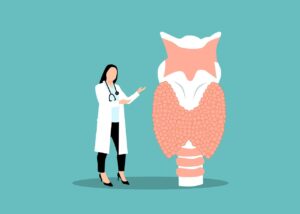Do you all think food is enough to fulfill all the nutrition requirements of the body? If I want to answer this I would say I’m not sure! Maybe there is a problem with the absorption of the food or your gut might be leaky anything could be a culprit for indigestion as our food standing alone is not potent enough to provide us with all the micronutrients on its own. Your digestion sometimes requires that extra push when the stomach acid levels are low (the stomach agni what we say!) in this case the body suffers a lot from acid reflux, acidity, bloating.
Let’s see some beneficial supplements for gut health that will support your digestion process:
Essential Supplements for Gut Health
Digestive enzymes:
Digestive enzymes are often supplemented to help break down and digest food. When the body’s digestive enzymes are not functioning properly – whether due to stress, inflammation, or some other reason – we provide them to fix and help the gut to digest or to break down hard-to-digest foods.
Betaine HCL/pepsin:
This supplement is like a gem to me and for my clients too, as it increases the amount of hydrochloric acid in the stomach to help break down food. This supplement must be taken with some form of protein, which is why pepsin (the enzyme that breaks down protein) is often included. Betaine HCL/pepsin is used for low stomach acid. In particular, individuals with ulcers, those who take anti-inflammatory drugs, or anyone who experiences a burning sensation should not take this supplement. Always take precautions.
Digestive bitters:
Bitters can be foods or herbs with a bitter flavor. These stimulate the body’s natural digestive juices and the production of stomach acid. The Standard American Diet pays little attention to bitter flavors, which is why this is more commonly supplemented. Bitter flavors can also curb sugar cravings and balance blood sugar.
We humans are the species that are made of more bacterial cells lying inside our gut and helping us by digesting food properly, in simple words they are making our life’s easier, our gut is a hub for billions & trillions of microorganisms to protect and support them we need proactive supplements, we need them because we tend to lose those precious microorganisms by eating yummy food which is not so tolerated by our gut such as outside frankie, bread, pastas, momo, burger etc. To start the growth of these microspecies and hence upgrading the gut flora we need some potential natural pre and probiotics.
Prebiotics:
Prebiotic fiber is food for bacteria. Healthy bacteria promote a healthy gut! Prebiotics are found in many vegetables. However, some individuals may prefer to supplement if they have a hard time getting enough fiber in their diet. Prebiotics can be irritating for individuals with small intestinal bacterial overgrowth (SIBO) and irritable bowel syndrome (IBS).
Probiotics
Probiotics can be great for maintaining a healthy gut to protect against infection or to rebuild the gut after a course of antibiotics or some type of disturbance. Diversity is key, so the more variety in the strains, the better. The amount and type of probiotics to take can vary based on the reason why a person is taking them.
We gave supplements to improve digestion, to bloom the gut flora now it is time for important things which are the gut linings that erode due to our poor eating habits, we tend to go rough and brutal on our digestive tract leading to the erosion of some supplements heal it and bring back your lining to action, the natural supplements are:
L-glutamine:
L-glutamine is an amino acid that’s used as a building block for repair of a compromised gut. It can help nourish and rebuild the gut lining.
Methylsulfonylmethane (MSM):
MSM is active sulfur, which is a mineral that can help reduce inflammation and rebuild tissue. It best helps with leaky gut.
Mucilaginous herbs
As their name might imply, these are typically herbs that have a mucous-like quality. They swell in water and can be gel-like. This helps with inflammation of the digestive tract. Mucilaginous herbs can be used to help move stool or soothe irritation. Examples include slippery elm, aloe vera, marshmallow root.
Magnesium
This supplement can help with detoxification. Magnesium is often paired with glycinate, an amino acid, which can make it easier to absorb and assimilate. Magnesium oxide softens the stools too!
In conclusion, we don’t need to go on supplements lifelong they are just the support system; a healthy lifestyle and good food habits will serve as a whole guidebook for a long healthy life. Taking supplements never means you are sick, it means you care for your body.
Don’t let your gut health be a guessing game. Karishmma Chawla’s expertise will guide you to the right supplements with a wink and a smile!





